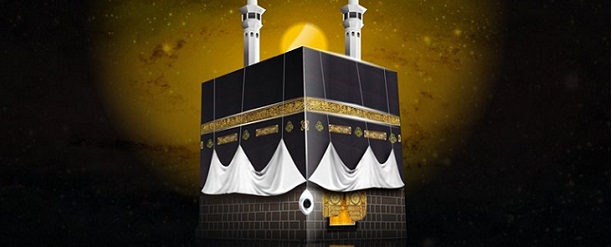How to Remove Poverty?
 Factors, which remove poverty or stop a person from becoming poor, are many in Islam but we are going to mention 25 of them:
Factors, which remove poverty or stop a person from becoming poor, are many in Islam but we are going to mention 25 of them:
1- Marriage
Marriage is one of the Sunnat (Customs) of Allah about which it is highly recommended in the Holy Quran and traditions of Masoomeen (a.s.).
Many, who do not perform this custom, consider the problem of poverty as difficult. Almighty Allah has answered this problem in the Holy Quran in the following way:
وَأَنْكِحُوا الْأَيَامَىٰ مِنْكُمْ وَالصَّالِحِينَ مِنْ عِبَادِكُمْ وَإِمَائِكُمْ إِنْ يَكُونُوا فُقَرَاءَ يُغْنِهِمُ اللَّهُ مِنْ فَضْلِهِ وَاللَّهُ وَاسِعٌ عَلِيمٌ
“And marry those among you who are single and those who are fit among your male slaves and your female slaves, if they are needy, Allah will make them free from want out of His grace.” (Surah Nur: 32)
Also, Imam Sadiq (a.s.) said:
“One who does not marry due to fear of poverty, has thought ill of Allah, because Allah says:
إِنْ يَكُونُوا فُقَرَاءَ يُغْنِهِمُ اللَّهُ مِنْ فَضْلِهِ
“…if they are needy, Allah will make them free from want out of His grace.” (Surah Nur: 32)
2- Economical and moderate path
Imam Sadiq (a.s.) said:
“I guarantee that one who observes economy and middle path will never become poor.”[1]
3- Charity
Amirul Momineen (a.s.) said:
“Whenever poverty strikes, make transactions with Allah through Sadaqah.”
Regarding helping the poor, attention should be paid that relatives are to be given preference. In the same way, the Holy Prophet (s.a.w.s.) adviced Amirul Momineen (a.s.):
“O Ali! Till the relatives are needy, giving charity to others is of no use.”
4 & 5- Doing good to parents and relatives
Imam Sadiq (a.s.) said:
“One who wants ease at the time of death, should do a lot of good turns to his relatives and behave nicely with parents. If he does so, Allah will make the difficulties of death easy for him and he will not become poor throughout his life.”
- To do good turns to others
Imam Baqir (a.s.) said:
“Goodness and charity drive away poverty; prolong life and save from seventy types of bad and accidental deaths.”
7- Washing of hands before and after meals
Imam Sadiq (a.s.) said:
“Washing of hands before and after meals drives away poverty and increases sustenance.”
8- Eating food crumbs which fall on the dinner spread
Holy Prophet (s.a.w.s.) said to Amirul Momineen (a.s.):
“Eat whatever falls on the dinner spread, because it will remove poverty from you, it is the marriage portion for Hourul Ein and anyone who eats it, his heart will be filled with knowledge, forbearance, faith and light.”
9- Vinegar
Holy Prophet (s.a.w.s.) said:
“Vinegar is the best gravy, members of the house in which vinegar is there, will never become poor.”
10- To brush twice a day
Amirul Momineen (a.s.) narrated the following from the Holy Prophet (s.a.w.s.):
“Almighty Allah will be happy with one who brushes once a day and he will go to Paradise. And one who brushes twice a day, is like he has continued the Sunnat of the Holy Prophet (s.a.w.s.) and Almighty will give him rewards of 100 rakats for every rakat (unit) of Namaz prayed and make him independent and drive away indigence from him.”
11-12 & 13- Cutting nails, especially on Thursday, trimming moustaches on Fridays and washing of the head with Khatmi (a Herb).
Imam Sadiq (a.s.) said:
“To cut the nails short, trimming of moustaches and washing of head with Khatmi removes poverty and increases sustenance.
Also Hazrat said:
“Allah will remove poverty from one who cuts his nails on Thursday leaving one for Friday.”
And Imam Sadiq (a.s.) said about the washing of the head with Khatmi:
“Washing the head with Khatmi protects a person from headache, removes poverty and cleans the head from dandruff.
- Combing the hair
Imam Sadiq (a.s.) said:
“One who combs hair, removes poverty and illness.”
- Combing of beard after ablution (Wuzu)
The Holy Prophet (s.a.w.s.) said:
“To comb the beard after every ablution drives away poverty.”
- Use of rose water
The Holy Prophet (s.a.w.s.) said:
“Indeed rose water increases the freshness of the face and drives away poverty.”
- To wear a ring of Cornelian (Aqeeq)
Imam Reza (a.s.) said:
“Aqeeq drives away poverty.”
- To wear a ring of Turquoise (Firoza)
Imam Sadiq (a.s.) said:
“One who wears turquoise will not become poor.”
- To wear a ring of Ruby (Yaqoot), especially a yellow ruby
Imam Sadiq (a.s.) said: The Holy Prophet (s.a.w.s.) said as follows:
“To wear a ruby ring drives away poverty and one who wears Aqeeq, it is expected that his end will be on faith.”
As for yellow Yaqoot, the Holy Prophet (s.a.w.s.) said:
“One who wears yellow Yaqoot will not become poor.”
- To wear an emerald ring
The Holy Prophet (s.a.w.s.) said:
“Wearing an emerald ring drives away poverty.”
- To inscribe the following on ring: مَا شَآءَ اللهُ
Imam Sadiq (a.s.) said:
“One who inscribes the above will remain safe from severe poverty.”
- To carry a walking stick
The Holy Prophet (s.a.w.s.) said:
“To carry walking stick removes poverty and Satan will does not come near.”
- To clean the house
Imam Baqir (a.s.) said:
“Cleaning the house removes poverty.”
- To put on lights before sunset
Imam Reza (a.s.) said:
“To put on the lights before sunsets, drives away poverty.”
- To name children on these Holy names: Muhammad, Ahmad, Ali, Hasan, Husain, Talib, Abdullah and Fatima.
Sulaiman Jafari says: I heard Imam Musa Ibne Ja’far (a.s.) say:
“Poverty never enters the house in which the following names are: Muhammad, Ahmad, Ali, Hasan, Husain, Talib, Abdullah or female named Fatima.”






